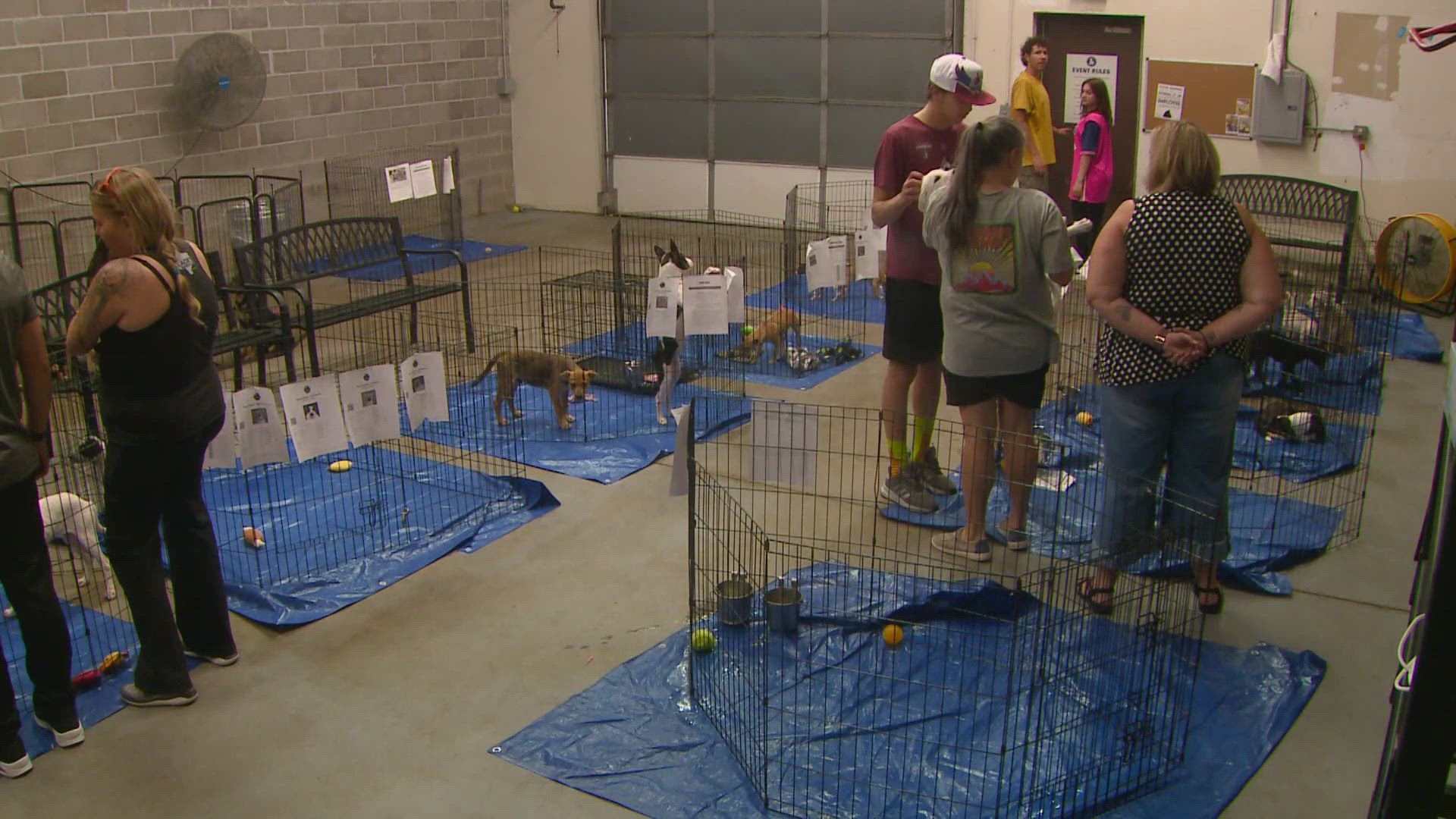DENVER — Attendees of a puppy adoption event in Sheridan are being asked to contact the Colorado Department of Public Health and Environment (CDPHE), as health officials say they may have been exposed to rabies.
A puppy at the Moms and Mutts Colorado (MAMCO) Rescue for Pregnant and Nursing Dogs adoption event, held on Saturday, July 20, tested positive for rabies on Wednesday after it was euthanized, CDPHE said in a release.
MAMCO Director Aron Jones said it breaks her heart, knowing puppies are being euthanized. She said while she doesn't agree with the state's call, she doesn't have a choice in the decision.
"I definitely told them we should explore other options, other vaccine protocols," Jones said. "I definitely put my two cents in there, but I didn’t have a choice when it came to the final decision and cooperating with that."
Jones said she doesn't believe any of the puppies in the litter are sick, which makes the euthanasia process hurt even more.
"We’re all extremely sad for these adopters and these puppies," Jones said. "It’s just really hard to say it’s okay to euthanize perfectly healthy puppies."
According to the department, euthanizing an animal is the only way to test it for rabies. This is the first time a dog has tested positive for rabies in Colorado since 2020, per the release.
Health officials ask that attendees who interacted with the "July Shepherd Mix litter," also referred to as "The Celebrity Kids litter," contact the health department for a screening. Booster vaccines may be necessary for any exposed animals that were already vaccinated for rabies.
"This is terrible," Jones said. "Rabies is extremely rare and none of the puppies were old enough to be vaccinated until this past Thursday so it wasn’t like we did anything wrong. It’s just been a really awful situation."
Jones said fallout from the situation has resulted in a sharp decline in adoptions. She said Saturday alone, three people backed out of their adoption deposits. She said if the trend continues, the shelter may be forced out of business and dogs will be unhoused in the process.
"We just love them all so much and they all have such unique personalities, and we just want to continue saving them," Jones said. "Making sure we have the resources to do that is really important and they’re all so special and healthy and happy and they’re going to make people really happy."
How to get in contact with the Colorado Department of Public Health and Environment:
- For calls during regular business hours, people can call the CDPHE hotline at 303-692-2700
- For calls after hours, during weekends, or on holidays, people can call 303-370-9395
What will happen to humans exposed to rabies?
After conducting a risk assessment, public health officials recommended a post-exposure treatment to prevent rabies infection in humans, also known as post-exposure prophylaxis, for 17 people who were in close contact with the infected puppy, per the release. Health officials will continue screening people who attended the adoption event and offer post-exposure prophylaxis if needed.
What will happen to other animals exposed to rabies?
According to the release, the rabies-positive puppy was originally from Texas and was at the MAMCO event with its 11 unvaccinated littermates. Because there are no licensed post-exposure prophylaxis products for animals, unvaccinated animals exposed to rabies should either be euthanized or placed in a 120-day quarantine in a facility that separates them from humans and other animals, CDPHE said.
Due to the fact that "strict quarantine is not feasible," public health officials are contacting those fostering the exposed puppies about surrendering them in accordance with guidance from the National Association of State Public Health Veterinarians.
The health department said efforts to locate other possible animal exposures are underway.
What is rabies?
Rabies is a viral disease that affects the central nervous system and is usually transmitted through the saliva of an infected animal, according to CDPHE. There are vaccines to prevent rabies in dogs, cats and ferrets.
Although the incubation period is usually between three and six weeks, the department said it can range from days to months for humans or animals, depending on how the exposure happened.
Colorado reportedly has an average of 50 positive rabies specimens every year and has not had a human case of rabies since 1931.

